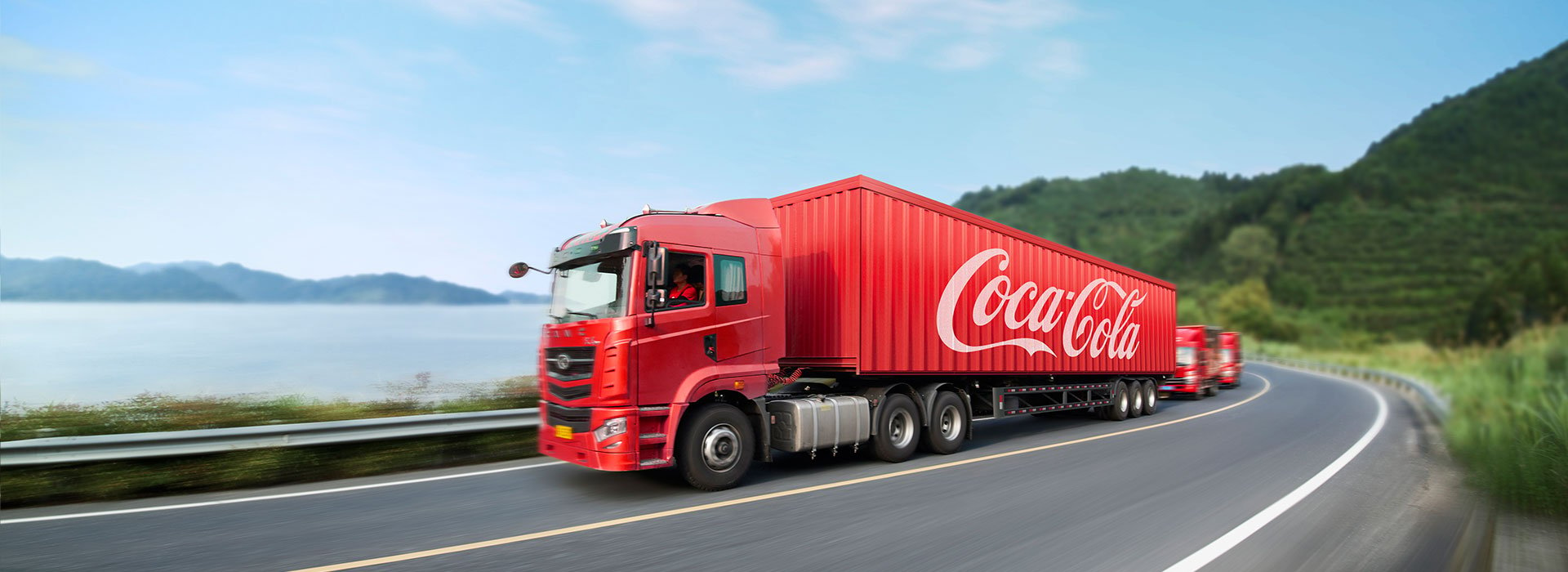Judy Zheng: Values of corporate safety culture and safety management
Drawing on background in food engineering and extensive experience in diverse operational roles across the supply chain, Judy Zheng, QSE Director, Swire Coca-Cola China, deeply understands the critical importance of safety. During the interview, she shared insights on the roles and values of corporate safety culture and safety management, as well as the development of leadership, influence, and other soft skills through her involvement in safety practices.


Judy Zheng
Chair of the Swire China Health & Safety Working Group
Q.
How did your journey in safety begin, and how has interest in safety influenced your career choices?
I have been working at Coca-Cola system for over 20 years. I worked in various operational roles across the supply chain and have been managing safety responsibilities for more than a decade. As a frontline manager, I need to address and balance numerous challenges every day. However, when it comes to safety, it is crucial for me to show courage and decisiveness; especially when risks are identified, I must stand out and say “No”. As I’m now entrusted with more responsibilities related to safety management, I also serve as Chair of the Swire China Health & Safety Working Group. At Swire Coca-Cola, safety vision, “Zero is Possible,” aims to achieve zero injury within business chain and minimize safety risks for all employees and partners. All these goals help me implement and improve the safety management to better align with the company’s overall vision.
Q.
In what way can company culture and good leadership make a difference when creating safety in the workplace?
Values are the cornerstone of a company, and safety should always precede all other values. At Swire Coca-Cola, we would never compromise safety for any task. We should believe that all injuries are preventable with this safety-focused value in the first place, and then we talk about how to implement safety measures. Safety leadership plays a crucial role not just in shifting mindsets but also in fostering shared values and behavioral norms. As these norms become ingrained habits, they shape into shared values among employees, forming a fundamental aspect of safety culture.
When we implement safety management systems or even before building tools and methods, we always tell our employees what’s right from the very beginning: working safely is not only the right thing to do but also a cornerstone for the long-term and sustainable development of the company. We then teach them how to achieve this goal through reliable safety measures. Good leadership can drive the progress, guide and motivate all employees to actively participate, and foster a localized safety culture.
“Safety leadership plays a crucial role not just in shifting mindsets but also in fostering shared values and behavioral norms. As these norms become ingrained habits, they shape into shared values among employees, forming a fundamental aspect of safety culture.”
– Judy Zheng, QSE Director, Swire Coca-Cola China, Chair of the Swire China Health & Safety Working Group
Q.
How should safety planning keep pace with technological innovations and revolutions?
Both the manufacturing industry and the fast-moving consumer goods sector are integrating advanced technologies, such as intelligent safety devices, wearables, and smart recognition systems, across various stages from manufacturing to logistics. We are also actively embracing. In future, there is huge potential for enhancing safety through intelligence and digitalization. Leveraging Industry 4.0 or digital methods can help us make advancements in traditional safety management.
In terms of safety planning, we believe in the principles of ‘safety-by-design’ and ‘quality-by-design’. Firstly, safety is effectively managed through a systematic approach that encompasses all processes, rather than corrective actions and emergency measures. Secondly, safety is a product of design, all site practices should be handled with a forward-looking mindset. Lastly, since safety is a specialized field, it is essential to establish professional safety capabilities and obtain certification.
“In future, there is huge potential for enhancing safety through intelligence and digitalization. Leveraging Industry 4.0 or digital methods can help us make advancements in traditional safety management.”
– Judy Zheng, QSE Director, Swire Coca-Cola China, Chair of the Swire China Health & Safety Working Group

Q.
What qualities do you believe an exceptional leader should possess?
As a safety manager, I expect myself and my team to demonstrate a strong sense of responsibility and proactivity. This job requires every one of us to have the courage to take on responsibilities, the yearning to seek success, and always takes the well-being of employees into consideration. It’s important to recognize that challenges are inevitable, and people have diverse ways to think and tackle problems. Therefore, it’s paramount for leader to be able to recognize talents and show inclusivity, understand employees’ strengths to unlock their potential while acknowledging their weaknesses to help them grow and improve.
A highly inclusive leader empowers individuals while also nurturing and leveraging the diverse perspectives within a group. Collaboration is crucial. I believe that an inclusive leader can foster autonomy, allowing team members to share diverse perspectives, draw inspiration from each other’s ideas to address complex issues.
Our success is not possible without the exceptional talents within team. I believe embracing inclusivity enhances team empowerment, supports skill development, and encourages individuals to pursue their aspirations. Together, we are committed to advancing and progressing as one cohesive unit.
“A highly inclusive leader empowers individuals while also nurturing and leveraging the diverse perspectives within a group.”
– Judy Zheng, QSE Director, Swire Coca-Cola China, Chair of the Swire China Health & Safety Working Group